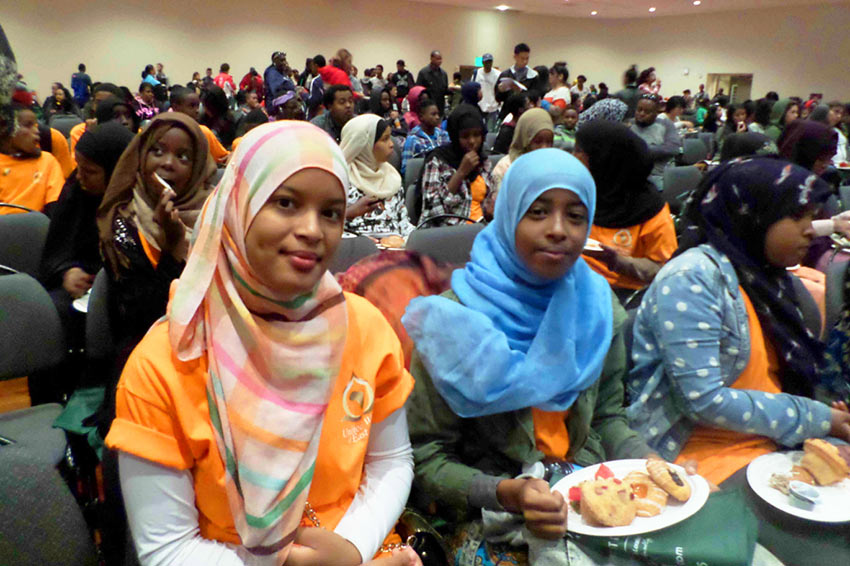31 October 2017
Refugee Teaching: Listening and Learning to Build New Community Partnerships
By Kelly Davis

Founding Members, Critical Refugee Studies Collective
For years, California has welcomed more refugees than any other state, which presents both challenges and opportunities, especially when it comes to education. In 2016, the University of California launched the Critical Refugee Studies Collective, a four-year initiative involving faculty and graduate students that seeks to make the UC system “the premier institution for critical research, teaching, and public initiatives on refugees.”
On November 3 and 4 in City Heights, at the East African Community & Cultural Center, CRSC is holding a symposium on refugee teaching that it hopes will be a springboard for larger initiatives — including a partnership with UC San Diego Extension to offer coursework for educators and mental health professionals who work with refugee communities. (Educators who attend the symposium can earn academic credit through Extension’s Department of Education and Behavioral Sciences.)
The fact that the symposium is called “Refugee Teaching” and not “Teaching Refugees” is key — a significant part of the program features refugee students and parents talking about their experiences with the education system. And Friday evening includes cultural performances and a bazaar featuring items made by refugee artisans.
Yen Le Espíritu, a professor of ethnic studies at UC San Diego who’s also a member of the CRSC and the symposium’s organizer, said the event is the first of its kind in terms of bringing in refugee parents and students to share their perspectives.
“One of [CRSC’s] main goals is to make sure refugees are included in initiatives that concern them,” she said, “and that they’re not represented only as a problem for service providers to solve, but rather that they have their own ideas that would inform [refugee-focused] programs.”
Morgan Appel, director of Extension’s education and behavioral sciences department, said the symposium’s student and parent panels are what he’s most looking forward to.
“To hear from members of the community about their priorities, their needs, their talents and insights into building partnerships — I think that this symposium presents a rare opportunity to do some good introspective and reflective work based on community needs,” he said.
 Roughly 9,000 refugees arrived in California last year, according to the U.S. State Department’s Refugee Processing Center, with roughly one-third settling in San Diego — more than any other county in the state. Studies show that refugee students often struggle in school, held back by gaps in education, trauma and trying to figure out their place in the community. Espiritu says this can be challenging for educators and something the CRSC aims to examine.
Roughly 9,000 refugees arrived in California last year, according to the U.S. State Department’s Refugee Processing Center, with roughly one-third settling in San Diego — more than any other county in the state. Studies show that refugee students often struggle in school, held back by gaps in education, trauma and trying to figure out their place in the community. Espiritu says this can be challenging for educators and something the CRSC aims to examine.
“It’s never possible to address all of the individual issues,” she said, “so what we are hoping to do is provide a framework for how one would do it. One key is to think about refugee-centered education rather than a top-down approach.”
Espiritu hopes the symposium will help inform local initiatives, some of which are already in the works, including an after-school program and, in partnership with Extension, professional development courses for local teachers and others who work with refugee communities.
Espiritu said she appreciates the flexibility Extension offers, like the ability to hold courses in community settings where educators can gain a richer perspective.
“I envision a very multi-disciplinary course,” she said. “People who take the course can have a practical, hands-on understanding… as well as more of an academic background that historicizes the different waves of refugees who have come San Diego since 1975.”
Appel hopes the symposium, and the initiatives that spring from it, will be models that can be replicated not only throughout California but in other U.S. cities with large refugee populations.
“As education enters a new age and our populations become more diverse, I think this gives us the unique opportunity to really hear the voices that are impacted,” he said.